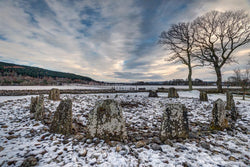The Science of Coffee - the roasting process explained..
We have all heard of the need to "roast" coffee beans as this leads to their distinctive appearance and flavour. But did you know that the roasting process revolves around a chemical reaction known as the Maillard reaction. The reaction is not unique to coffee and in fact occurs in other food substances as well, for example, frying steaks and also toasting bread.
The reaction is named after French chemist Louis-Camille Maillard, who first described it in 1912. The reaction takes place when amino acids in proteins are heated and is very often described by coffee roasters as the "browning phase".
The Maillard reaction is especially significant in the caramelisation phase in which many of the sugars contained within the coffee beans start to break down (or caramelise).The Maillard reaction occurs between reducing sugars and amino acids within the coffee beans resulting in an abundance of flavour and aromatic compounds in the coffee, contributing to its distinct taste. It is vital for coffee roasters to know exactly at which point in the roasting process this reaction occurs, the time taken to reach this reaction, and how long the reaction lasts for. This allows for the roasting profile of each coffee bean to be finely adjusted for temperature, and the time the beans are held at the temperature needed to induce this reaction. Leaving the beans too long at this temperature very often results in bitter coffee. Optimising the time the beans remain at this temperature results in the flavour profile of each coffee including chocolate, nutty and fruity flavours.
So roasting coffee beans is not as straightforward as simply putting them into an oven. In order to optimise the flavour of the roasted coffee beans, you need to understand the complex series of chemical reactions which is occurring during the process. Luckily one of the owners of Dryad Argyll is a chemist, and although Louise normally works on the candles side of the business, her knowledge and understanding of chemical reactions occurring during the roasting process means that our roasting profiles for each of our coffee beans has been carefully optimised.
This is why Dryad Coffee is roasted in small batches entirely by hand, without use of large commercial scale roasting machines which are pre-programmed with generic roasting programmes. Each of our roasting cycles is carefully temperature controlled by hand, being different for each bean to ensure that our coffee reaches you in optimum condition.

